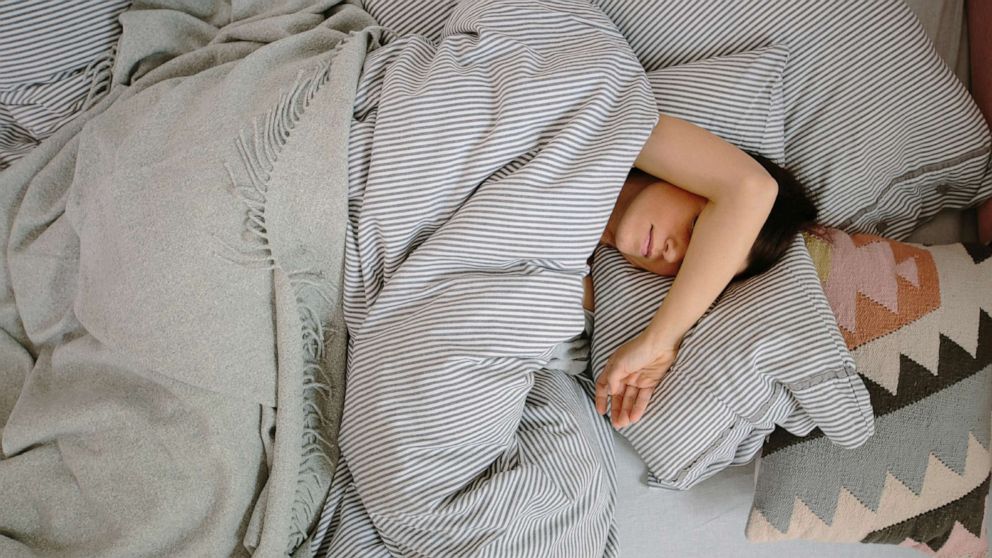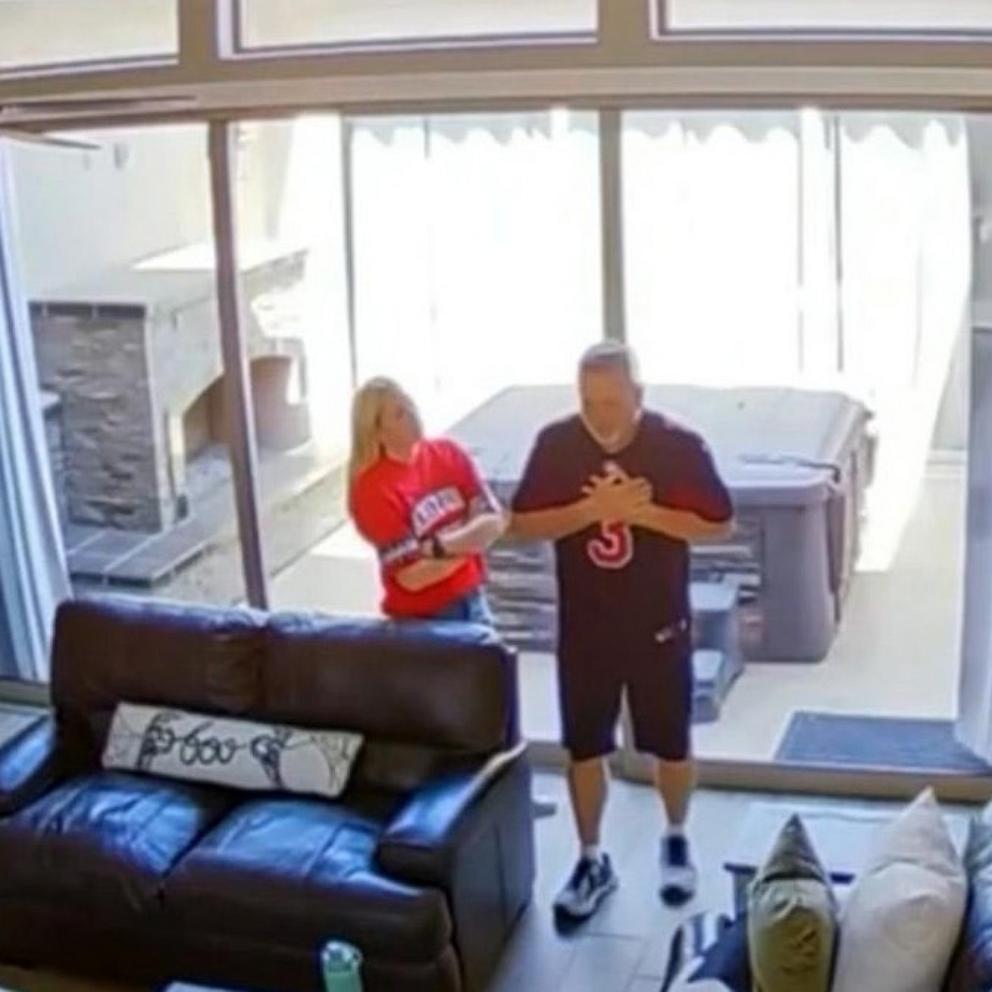Your guide to a perfect night's sleep
Sleep has a public relations problem in the U.S.
"We really view it as a luxury; we view people who like to sleep or get a lot of sleep as lazy, and that’s just not true," said ABC News Chief Medical Correspondent Dr. Jennifer Ashton. "We, in fact, can be referred to as a sleep-deprived society."
Sleep isn't just good for your mood, it's also the most important time for your brain to store memories and for your body to prepare for the next day.
"Sleep is when our body recharges, restores, resets, repairs," said Ashton. "It is a necessity. It's a medical necessity, it's not a luxury."
Doctors say poor sleep can seriously affect your health.
"There are health consequences to not getting enough sleep," said Dr. Sara Elizabeth Benjamin, who is an instructor of neurology at Johns Hopkins University.
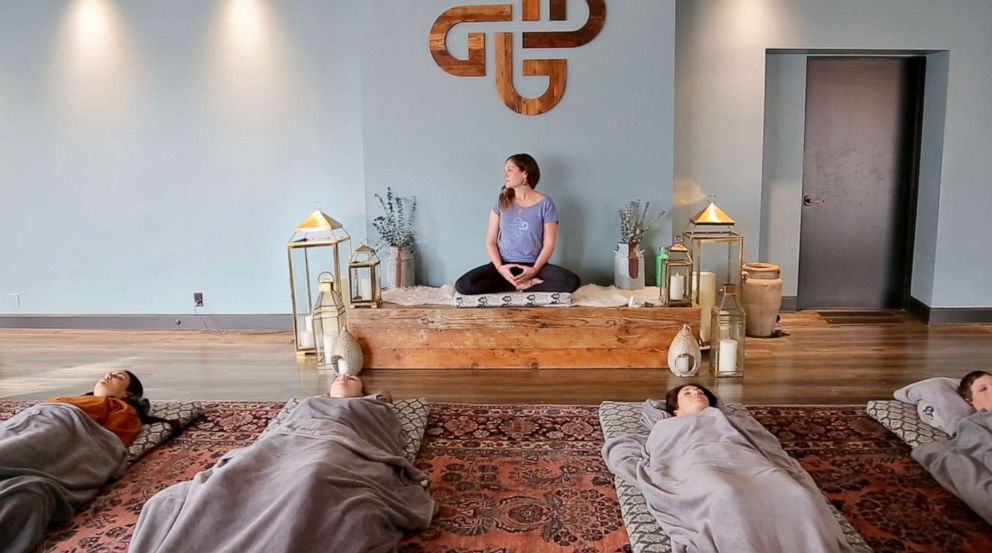
"Getting sufficient sleep helps us to think clearly during the day," Benjamin said. "Without enough sleep it’s hard to learn new things and to maintain a good mood."
Good, deep sleep helps clear things like abnormal proteins in our bodies, Benjamin explained.
"In Alzheimer's disease there are abnormal proteins in the brain ... scientists are still looking at the relationship between clearing these proteins and developing Alzheimer's disease."
"GMA" visited a yoga nidra class, also known as a sleep meditation class, in Los Angeles. It teaches students how to calm their minds for better sleep.
Yoga nidra meditation teacher Hilary Jackendoff has been practicing this type of yoga for 15 years.
Jackendoff said the ultimate goal is to "help people learn how to let go."
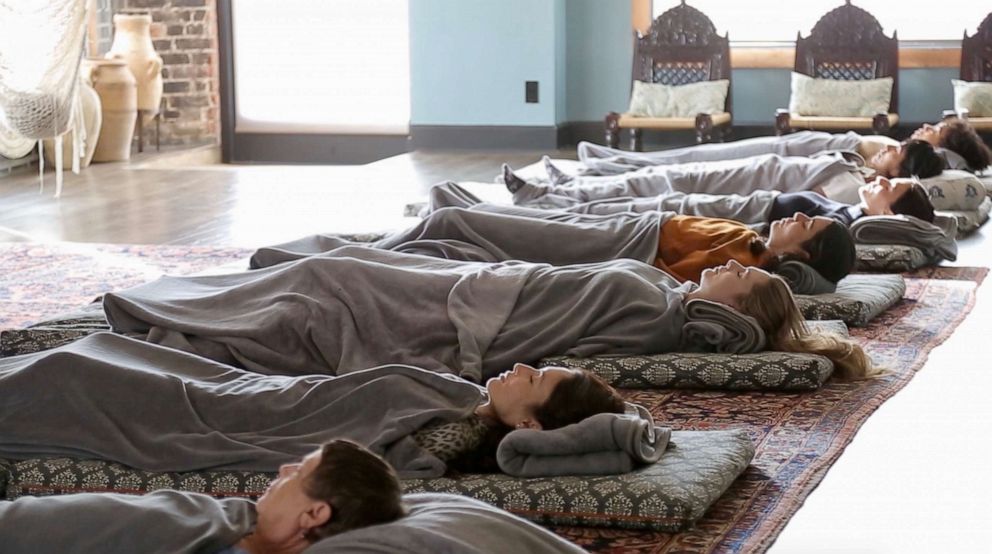
A class includes exercises to help release tension. With a guided meditation, students focus on their bodies and breathing.
"These different techniques will help you to slide more easily into a restful, relaxed state," Jackendoff said.
"GMA" also consulted experts on how to get a good night's rest. Here are those questions answered.
How many hours of sleep do you need to get per night?
The general recommendation for how much sleep an adult needs per night is seven to nine hours, according to the National Sleep Foundation.
Teenagers should get between eight and 10 hours, and children from ages of 6 to 13 should get between nine and 11 hours.
What is the best position for sleep?
Experts say sleeping on your stomach isn’t the best option, but sleeping on your back or side is fine. Overall, most people move around when they sleep, so go for what’s comfortable while protecting your neck, back and spine.
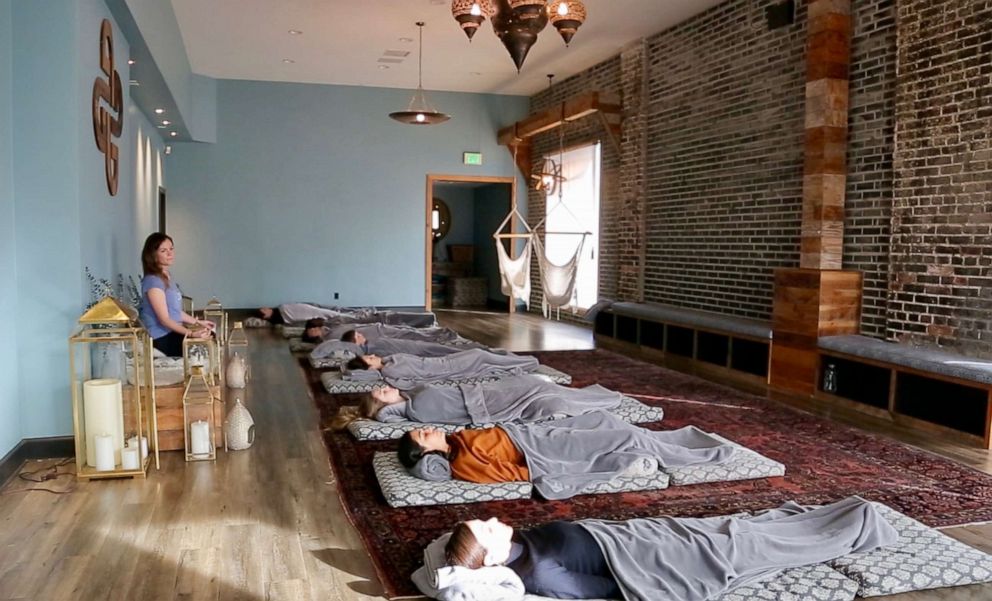
Is it bad to have light on when we sleep?
"Light is bad to have when you sleep," Ashton said.
Ambient light from another room, a window or an electronic device can filter into the brain and affect sleep.
"[This will] inhibit the release of melatonin, the so-called sleep hormone, and stimulate our brain," Ashton said.
What else is important to know?
Experts recommend setting a schedule and sticking to it. They also recommend meditation and exercise.
Try taking a warm bath or having a cup of tea to help relax, but avoid caffeine, alcohol and bright screens right before bed. You may also want to try a sleep machine, eye mask or even a weighted blanket, but only use what works best for you.
When it comes to medicine, doctors say be careful. It can be OK in the short term, but it’s not ideal to use for years.
The best possible environment is cold, dark and quiet.
